Understanding the Mercedes Benz Parts Diagram for Optimal Maintenance
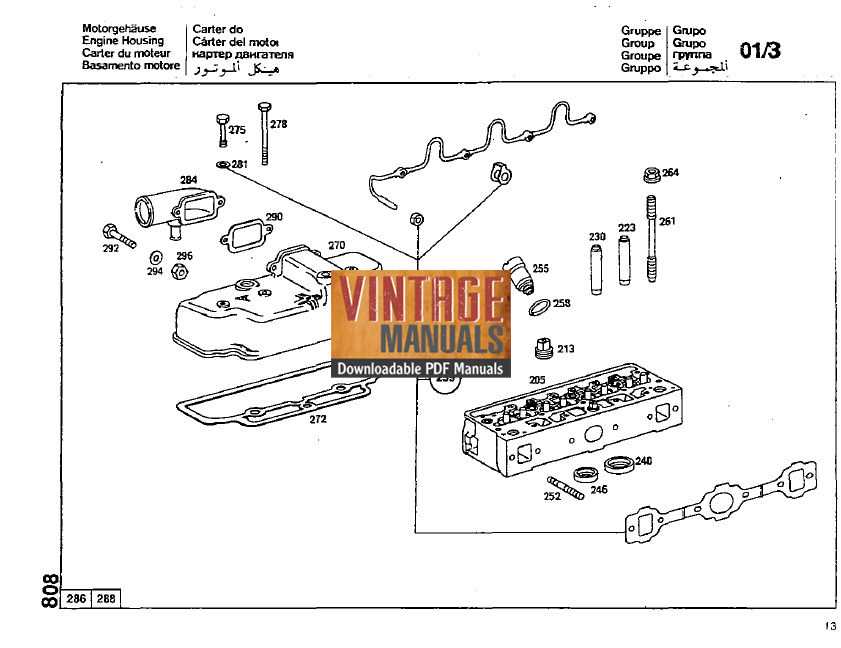
In the realm of vehicle maintenance and repair, having a comprehensive understanding of the intricate layouts of various mechanical elements is essential. This knowledge not only enhances the efficiency of repairs but also empowers enthusiasts and professionals alike to troubleshoot issues with precision. Clarity in component arrangement can significantly streamline the process of diagnosing problems and conducting replacements.
Visual representations of these assemblies serve as invaluable resources. They provide a detailed overview of how each part interacts within the system, enabling a more informed approach to maintenance. By referencing these guides, users can ensure that they are making the right choices when sourcing replacements or performing installations.
Furthermore, the accessibility of such information has transformed the automotive landscape, allowing individuals to engage more deeply with their vehicles. Whether you’re a seasoned technician or a curious car owner, understanding the organization of mechanical systems opens up a world of possibilities for effective care and enhancement of automotive performance.
Understanding Mercedes Benz Parts Diagrams
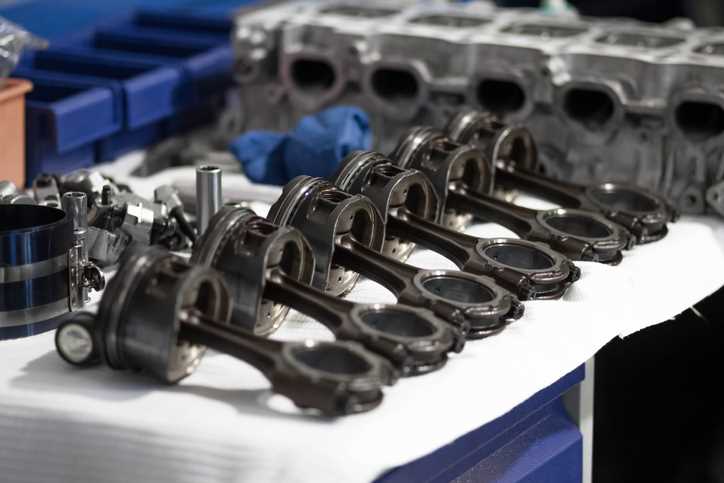
Comprehending the visual representation of components and their arrangements within a vehicle is crucial for effective maintenance and repairs. These illustrations serve as essential tools for enthusiasts and professionals alike, providing clarity on how each element interacts within the overall system. Familiarity with these visuals can significantly enhance one’s ability to diagnose issues and procure the right replacements.
Importance of Visual Representations
Visual aids offer numerous benefits, including:
- Enhanced clarity in identifying specific components.
- Facilitating efficient communication between mechanics and customers.
- Assisting in understanding complex assemblies.
- Guiding users in the disassembly and reassembly processes.
How to Utilize Component Illustrations
To effectively use these representations, consider the following steps:
- Identify the specific area of the vehicle you are working on.
- Locate the corresponding visual representation for that section.
- Study the labels and legends for a clear understanding of each component.
- Use the illustration as a reference while performing maintenance or repairs.
Mastering the art of interpreting these visual guides is invaluable for anyone involved in vehicle upkeep.
Importance of Accurate Diagrams
Precise visual representations play a crucial role in the maintenance and repair of complex machinery. They provide clarity and enhance understanding, allowing technicians to identify components and their interrelations effectively. Without these reliable illustrations, the likelihood of errors increases, potentially leading to inefficient repairs or costly damage.
Enhanced Understanding
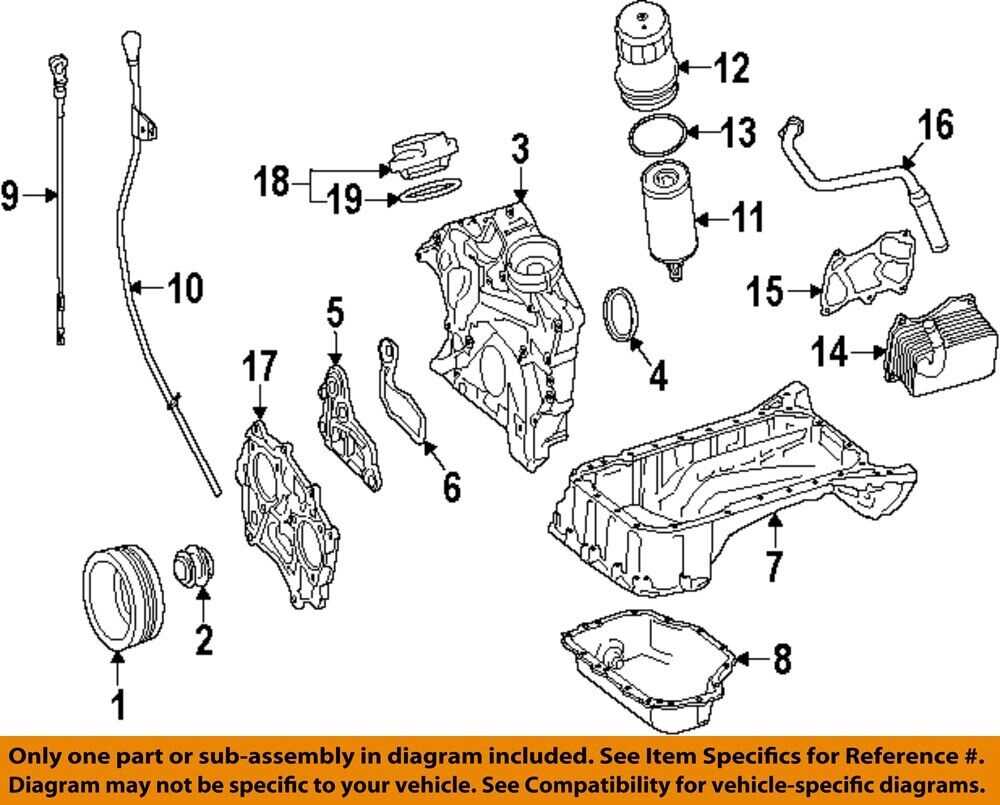
Clear visuals facilitate better comprehension of intricate systems. Technicians can easily trace connections and functions, which ultimately leads to more effective troubleshooting and problem resolution.
Cost Efficiency
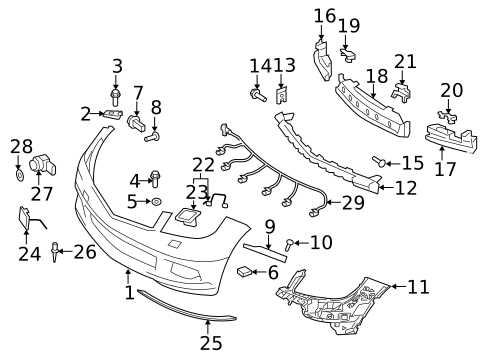
Investing in high-quality visuals minimizes the risk of mistakes during repairs. This proactive approach not only saves time but also reduces the likelihood of further damage, resulting in significant cost savings.
| Benefit | Description |
|---|---|
| Clarity | Provides clear identification of components. |
| Efficiency | Speeds up the repair process. |
| Accuracy | Reduces the likelihood of errors. |
| Cost Savings | Minimizes potential damages and additional repairs. |
Components Breakdown in Diagrams
Understanding the intricate relationships between various elements in automotive schematics is essential for effective maintenance and repair. These visual representations serve as a roadmap, illustrating how individual components interact and function together within a vehicle. By analyzing these layouts, technicians and enthusiasts can gain valuable insights into the assembly and operational dynamics of the machine.
Visual Clarity: The primary advantage of utilizing schematics is the clarity they provide. Each segment is distinctly marked, allowing for easy identification and localization of specific elements. This clarity aids in troubleshooting by highlighting potential failure points and simplifying the diagnostic process.
Component Relationships: Diagrams not only display individual parts but also emphasize their interconnections. Understanding how these parts work together is crucial for identifying systemic issues and ensuring comprehensive repairs. For instance, a breakdown may show how the electrical system interacts with mechanical components, offering a holistic view of the vehicle’s functioning.
Maintenance Guidance: Regular upkeep is facilitated by these illustrations, as they guide users in pinpointing wear and tear or required replacements. When one component shows signs of failure, the schematic helps to identify related parts that may also need inspection or replacement, ensuring that all affected systems are addressed.
In summary, diagrams serve as invaluable tools in the automotive field, fostering a deeper understanding of the intricate systems at play. By breaking down complex assemblies into manageable visual formats, they empower users to navigate the world of vehicle maintenance with confidence and precision.
How to Read Parts Diagrams
Understanding visual representations of components is crucial for effective maintenance and repair. These illustrations provide a detailed view of individual elements, their relationships, and assembly order. By familiarizing yourself with the symbols and layout used, you can navigate these resources with ease, ensuring a smoother workflow during your projects.
Key Elements of Visual Representations
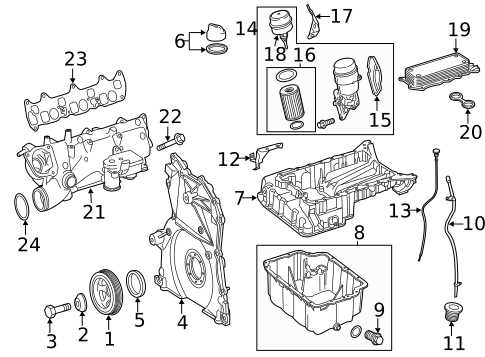
When examining a component illustration, several key features can assist in interpretation:
| Feature | Description |
|---|---|
| Legend | A key that explains the symbols used in the illustration. |
| Numbering | Sequential numbers that correlate to a list of items or specifications. |
| Sections | Divided areas that highlight different assemblies or systems. |
| Orientation | Indications of how components fit together and their spatial arrangement. |
Tips for Efficient Interpretation
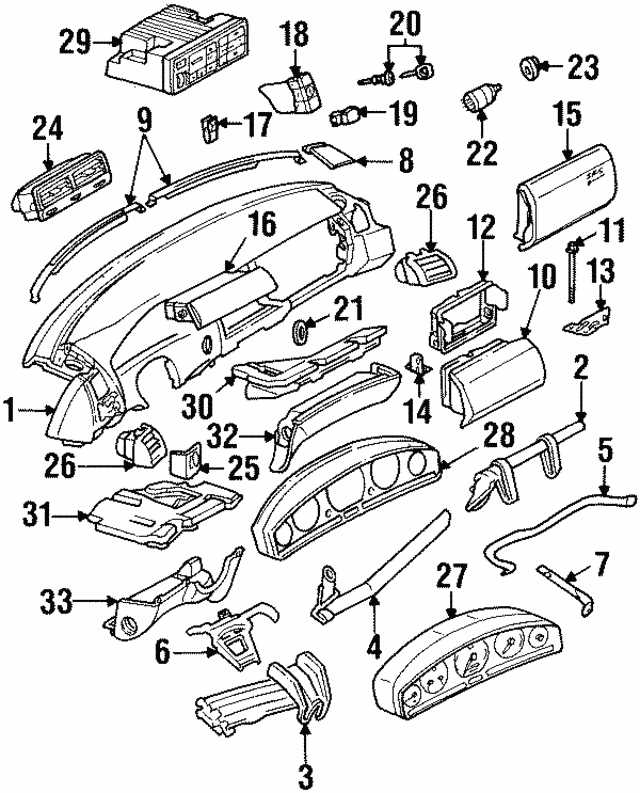
To enhance your ability to read these visual aids, consider the following strategies:
- Familiarize yourself with common symbols and terminology.
- Refer to the accompanying documentation for additional context.
- Practice by comparing illustrations with actual components.
Common Issues in Diagrams
When exploring technical schematics, users often encounter a variety of challenges that can hinder their understanding. These issues may arise from unclear representations, missing components, or inconsistent labeling, leading to confusion during the assembly or maintenance process. Addressing these problems is crucial for effective troubleshooting and optimal performance.
Ambiguity in Symbols
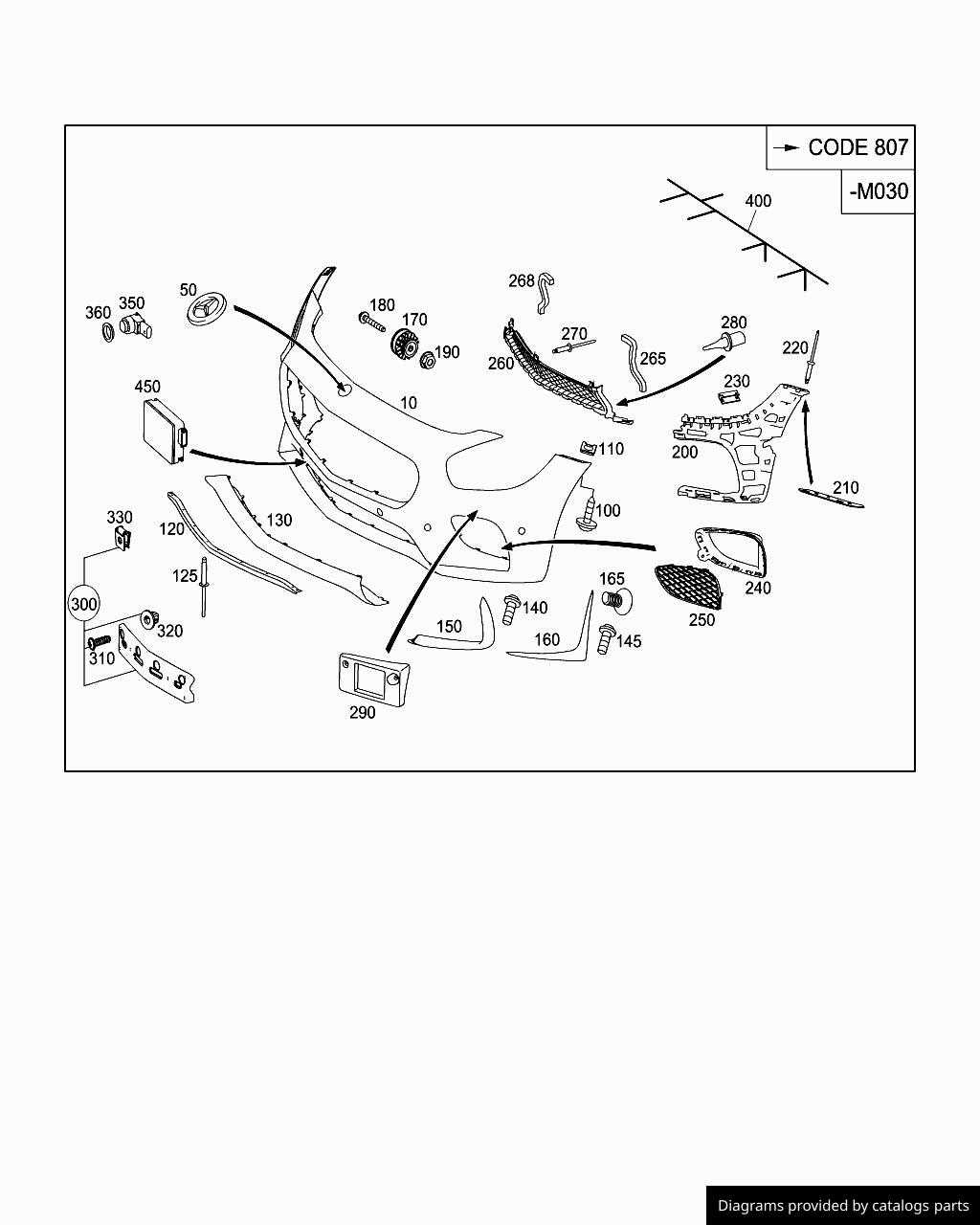
One frequent concern is the ambiguity of symbols used in illustrations. If the meanings of various icons are not well-defined, it can result in misinterpretation and errors in execution. Clarifying these symbols ensures that users can accurately comprehend the information presented.
Inaccurate Information
Another significant issue involves inaccuracies within the representations themselves. Whether due to outdated data or manufacturing changes, correctness is paramount for reliable guidance. Users should always verify the latest information to avoid costly mistakes.
Benefits of Using Diagrams
Utilizing visual representations significantly enhances understanding and efficiency in various fields. These illustrations serve as powerful tools for conveying complex information in a more digestible format, allowing users to grasp concepts quickly and effectively.
Improved Clarity and Communication
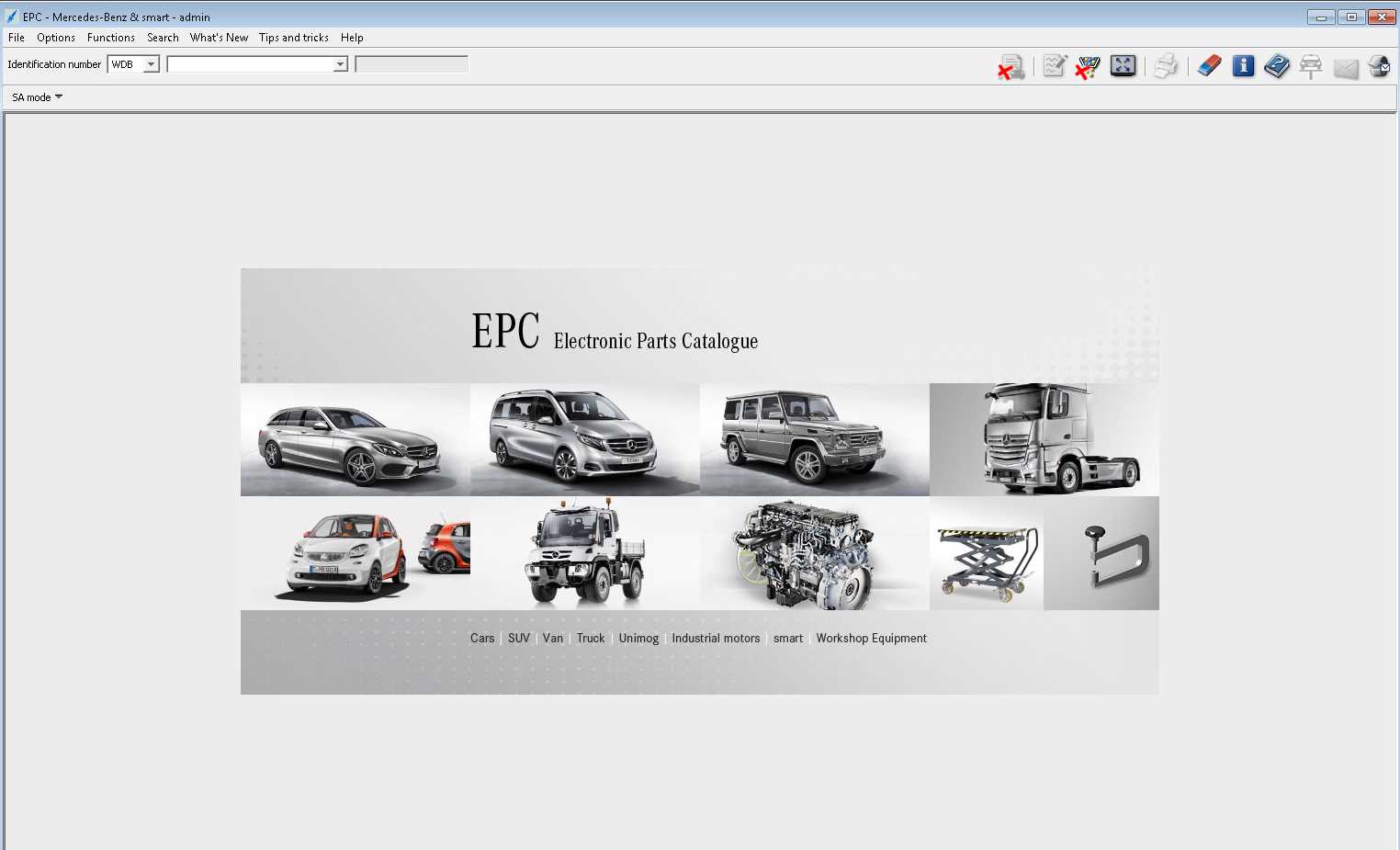
One of the primary advantages of visual aids is their ability to clarify intricate systems. By breaking down components into an organized layout, individuals can easily identify relationships and functions. This clarity fosters better communication among team members, as everyone can refer to the same visual reference, reducing misunderstandings.
Enhanced Problem Solving
Visual representations also facilitate efficient troubleshooting. When issues arise, having a structured view of the components involved enables users to pinpoint problems swiftly. This method not only saves time but also encourages systematic analysis, leading to more effective solutions.
Where to Find Authentic Diagrams
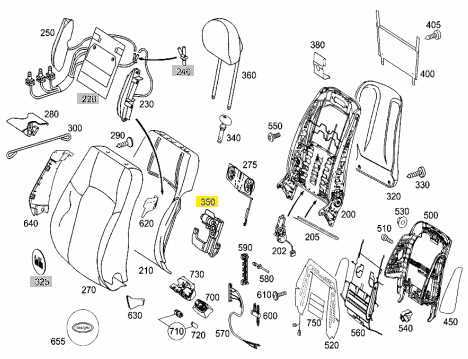
Accessing reliable illustrations for vehicle components is crucial for both enthusiasts and professionals. These visuals not only facilitate effective repairs but also enhance understanding of complex systems within the automobile. Fortunately, there are several resources where one can obtain genuine representations that ensure accuracy and dependability.
Official Manufacturer Resources
One of the best sources for trustworthy visuals is the official websites of automotive manufacturers. They often provide comprehensive manuals and detailed schematics that cover a wide range of models. Utilizing these resources guarantees that you are getting the most accurate and up-to-date information available.
Specialized Online Platforms
Numerous online platforms are dedicated to automotive maintenance, offering extensive libraries of visuals. Websites that focus on repair guides typically feature user-friendly interfaces, allowing users to search by make and model. These platforms often include community reviews, helping users identify which resources are most reliable and helpful.
Tools for Diagram Interpretation
Understanding complex visuals requires the right set of tools. These resources facilitate the interpretation of intricate schematics, ensuring clarity in analysis and decision-making. By employing various instruments and software, users can accurately decipher information and apply it effectively in practical scenarios.
Essential Instruments
A variety of tools play a crucial role in the interpretation process. From physical instruments to digital solutions, each tool serves a specific purpose in enhancing comprehension.
| Tool Type | Description | Usage |
|---|---|---|
| Digital Software | Applications designed to create and manipulate visuals. | Used for analyzing and modifying schematic representations. |
| Annotation Tools | Tools that allow users to add notes and highlights. | Helpful for marking important sections and providing context. |
| Measuring Instruments | Devices used to take precise measurements from visuals. | Essential for ensuring accuracy in interpretation. |
Collaboration and Sharing
Effective interpretation often involves collaboration. Tools that enable sharing and joint analysis can significantly enhance the understanding of complex visuals. By fostering communication among users, these resources contribute to more accurate and comprehensive interpretations.
Role of Diagrams in Repairs
Visual representations play a crucial role in the maintenance and repair of complex machinery. They provide a clear overview of components and their interconnections, facilitating a more efficient troubleshooting process. By simplifying intricate details, these illustrations enable technicians to quickly identify issues and locate necessary elements.
Understanding layouts is essential for effective repairs. Visual aids help mechanics grasp how various parts interact, making it easier to determine the root cause of a malfunction. This enhanced comprehension not only speeds up the diagnostic process but also reduces the risk of errors during repairs.
Moreover, these visuals serve as a valuable reference throughout the repair journey. Technicians can consult these illustrations to verify their work, ensuring that everything is correctly aligned and functioning. This aspect is particularly important when working with sophisticated systems, where precision is paramount.
In summary, the use of visual guides significantly enhances the efficiency and accuracy of repair tasks. By providing clear insights into the structure and function of components, they empower professionals to execute repairs with confidence and precision.
Upgrading Parts with Diagrams
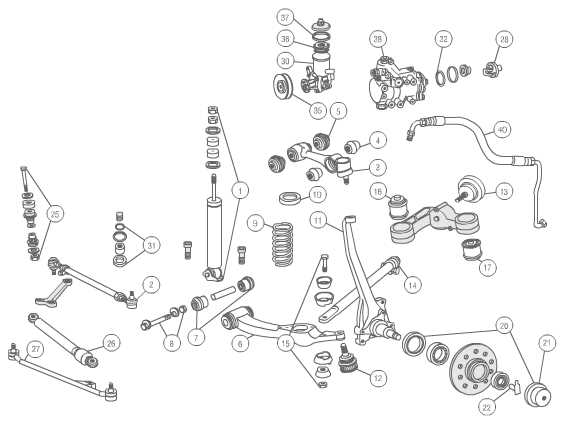
Enhancing vehicle components can significantly improve performance and aesthetics. Utilizing visual representations facilitates a deeper understanding of each element, allowing for informed decisions during upgrades. This approach ensures that modifications align with the overall design and functionality of the vehicle.
Benefits of Using Visual References
- Improved accuracy in installations
- Identification of compatible components
- Streamlined workflow during upgrades
Steps for Successful Upgrades
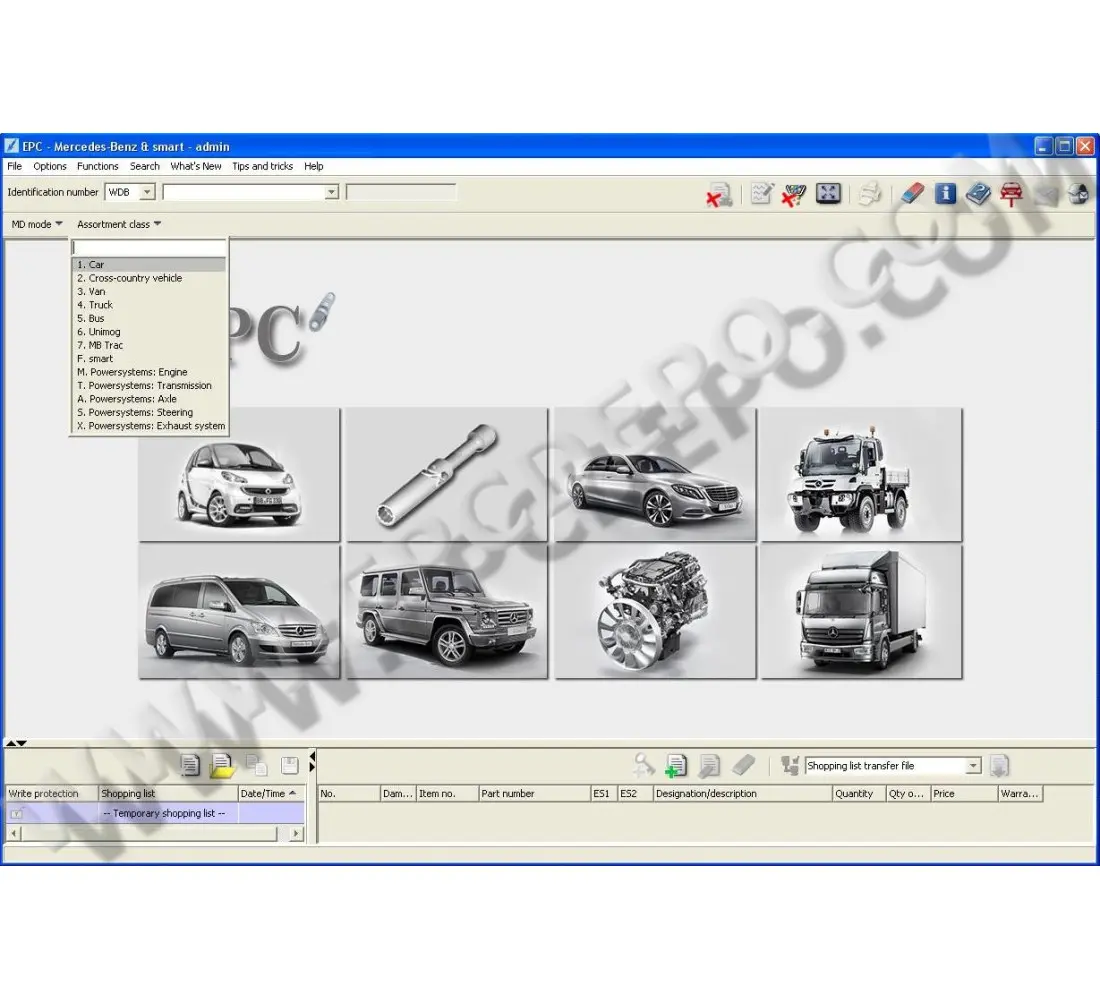
- Identify the component requiring enhancement.
- Consult visual references to understand the structure.
- Select compatible replacements based on the analysis.
- Follow best practices for installation.
Comparison of Different Models
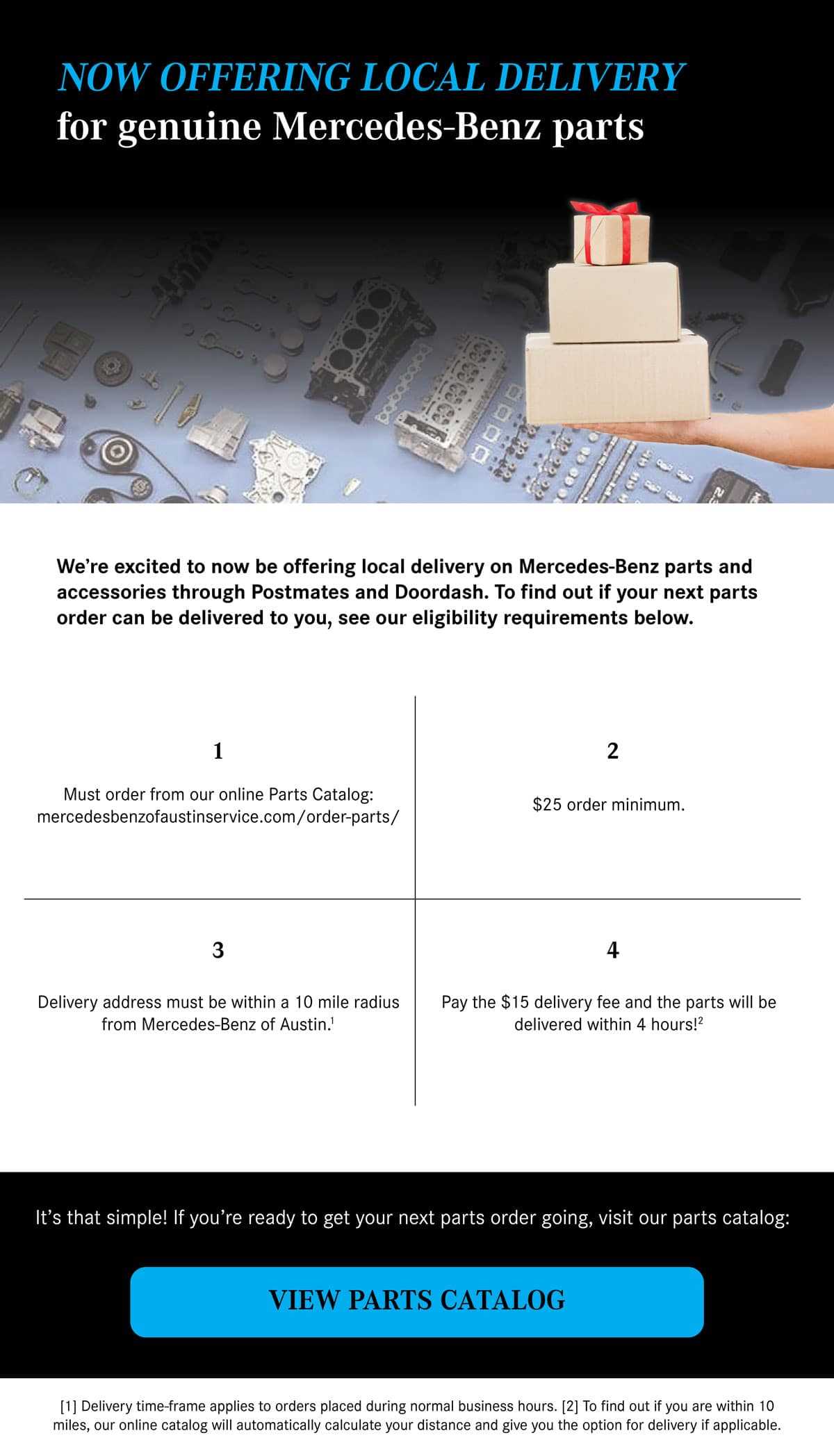
This section explores the distinctions among various vehicle types produced by the renowned automaker, highlighting their unique features and components. Understanding these differences can aid consumers in making informed decisions based on performance, style, and functionality.
Key Features
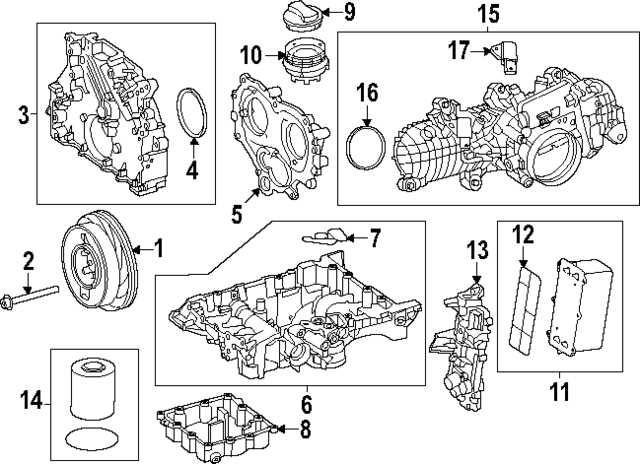
| Model | Engine Type | Fuel Efficiency (mpg) | Interior Features |
|---|---|---|---|
| Compact | Inline-4 | 30/40 | Basic, Minimalist |
| SUV | V6 | 20/25 | Spacious, Luxury |
| Luxury Sedan | V8 | 15/22 | High-End, Technology-Rich |
Performance Comparison
When analyzing the performance metrics, it becomes clear that each variant excels in different areas, appealing to distinct driving preferences and lifestyle needs. From agility in urban settings to power on highways, these models cater to diverse consumer demands.
Future of Digital Parts Diagrams
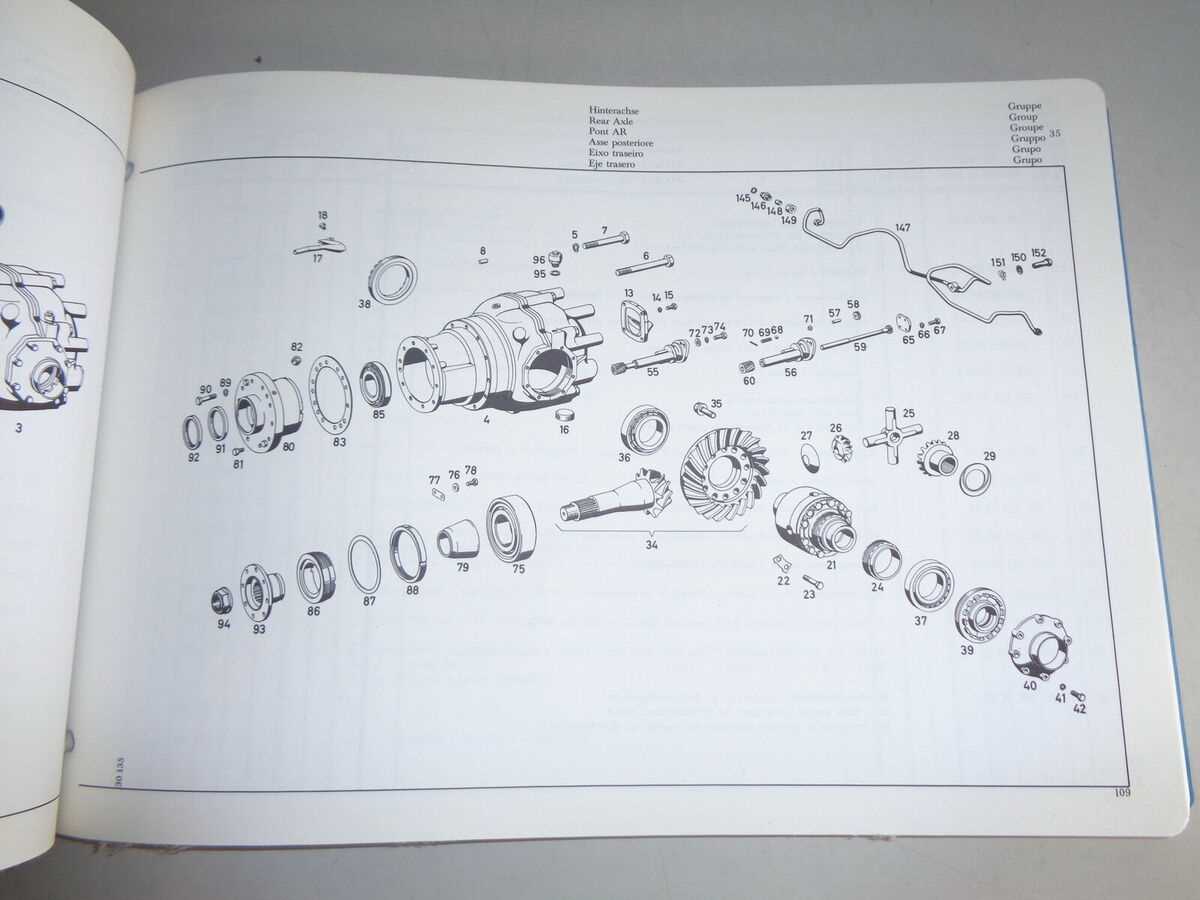
The evolution of virtual schematics is poised to revolutionize the automotive industry. As technology advances, the accessibility and accuracy of these visual resources will enhance the way enthusiasts and professionals interact with vehicle components.
| Trend | Description |
|---|---|
| Augmented Reality | Integrating AR can provide real-time overlays, allowing users to visualize components in a 3D space. |
| AI Integration | Artificial intelligence can streamline searches, offering personalized suggestions based on user needs. |
| Cloud-Based Platforms | Storing resources in the cloud ensures that users can access updated information from anywhere. |
| Interactive Features | Enhanced user interfaces will enable dynamic interactions, making it easier to identify and understand complex assemblies. |